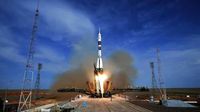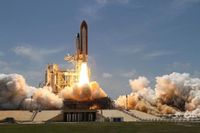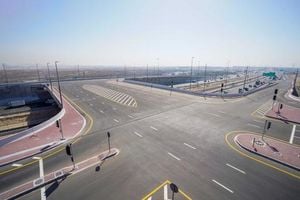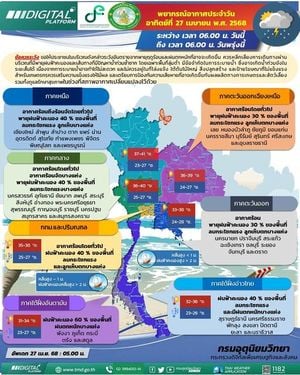In a significant step for Kazakhstan's space ambitions, deputies from the Mazhilis visited the Baikonur Cosmodrome, where they were briefed on the ongoing modernization efforts and the construction of a new rocket launch complex. This complex is being developed on the existing infrastructure of the Zenit-M facility and is designed to support the launches of the new medium-class Soyuz-5 carrier rocket. The project aims to empower Kazakhstan to conduct a full cycle of space activities, including the design, launch, and operation of satellites for the benefit of the national economy.
Kazakh cosmonaut Aidyn Aimbetov addressed the deputies, providing insights into the progress of creating the country’s first domestic space rocket complex. He highlighted that the modernization of the Zenit-M complex will not only enhance Kazakhstan's capabilities in space exploration but also foster economic growth through the development of satellite technology.
During their visit, the parliamentarians observed the launch of the Soyuz-2.1a carrier rocket, which was a part of their familiarization with the practical work being done at the site. Pavel Kazantsev, a deputy of the Mazhilis, emphasized the collaborative efforts between Kazakhstan and Russia in developing a comprehensive Kazakh model of a rocket that will be capable of launching both national and commercial satellites.
"Currently, there is a substantial amount of work being conducted in the Kazakh-Russian sector to establish a fully operational Kazakh rocket model, which will be pivotal for launching our satellites and commercial payloads," Kazantsev stated. He mentioned that the first pilot project is expected to be completed in December, with two additional pilot projects slated for the following year, paving the way for operational launches.
The historical significance of Baikonur cannot be overstated. It was from this site that the first artificial satellite, Sputnik, was launched in 1957, marking the dawn of the space age. Furthermore, it was the launch site for Yuri Gagarin's historic flight, which made him the first human to journey into space. These milestones have established Baikonur as a cradle of world cosmonautics, drawing global attention to Kazakhstan since its inception.
As the cosmodrome approaches its 70th anniversary on June 2, 2025, it continues to play a pivotal role in international space exploration. The site is not only historically significant but also strategically vital due to its geographical location, which offers advantages for rocket launches, including proximity to the equator and a high number of sunny days throughout the year.
Over the decades, Baikonur has witnessed numerous groundbreaking events in space history, including the testing of the lunar rocket N-1 and the flights of the reusable Buran spacecraft. In 1998, the Zarya space module was launched from Baikonur, marking the beginning of the International Space Station.
Currently, Baikonur is leased by the Russian Federation from Kazakhstan until 2050, and ongoing developments in the aerospace industry are indicative of Kazakhstan's growing aspirations in space. The modernization of the Baikonur Cosmodrome is not just about infrastructure; it represents a commitment to advancing Kazakhstan's position in the global space arena.
In a recent event, Gennady Opokin, a veteran of Baikonur who served at the cosmodrome for 19 years and participated in the preparation of over 200 spacecraft launches, shared his personal stories and reflections on the early days of space exploration. His insights highlight the human element behind the technological advancements that have taken place at Baikonur.
As part of a broader initiative to inspire the next generation, students from Darin School were surveyed about their aspirations regarding space. Interestingly, while many expressed a desire to explore the cosmos, fewer students indicated a wish to become astronauts compared to previous generations. Only a handful of students, including Aldiyar Zhanburshin and Alisa Gorbunova, articulated a dream of visiting space, reflecting changing attitudes toward careers in space exploration.
On April 15, 2025, a special event is scheduled at Baikonur to commemorate its rich history and to discuss future missions and technological advancements in space research. This event will feature presentations from space engineers and scientists, providing a platform for sharing knowledge and fostering interest in space exploration.
As Kazakhstan continues to develop its space capabilities, the legacy of Baikonur remains a source of national pride and a beacon for future generations aiming to push the boundaries of human exploration. The ongoing modernization efforts and the establishment of a domestic rocket complex signify a new chapter in Kazakhstan's space journey, one that promises to enhance the nation’s technological prowess and economic development.
With the first pilot project on the horizon and a commitment to advancing space technology, Kazakhstan is poised to make significant strides in the global space community, ensuring that Baikonur remains at the forefront of space exploration for years to come.








